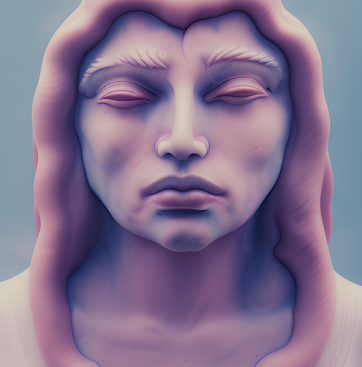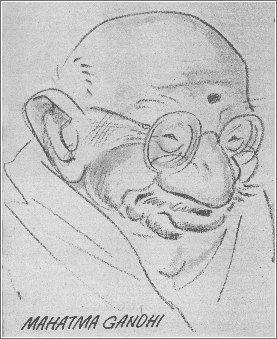The true nature of Evil, by D. Conterno (2019)
What is evil? What is this thing that that brings fear,
violence, deception, suffering, sorrow, distress and calamity? Is evil just
confined to a few humans or is it lurking somewhere in our psyche? This article
will challenge what we understand by evil and hopefully will lead the readers to
a new understanding and more importantly a greater awareness of what our
consciousness is made of…
But could it be that such a perception of evilness is
flawed? Could it be that evil is present at the core of our psyche, not as a
trait we may acquire through life experience but a trait that is fundamentally
part of ourselves? Consequently, we have built societies where evil deeds are
just common daily practices. We also conveniently close our eyes to the massive
amount of suffering we perpetrate, directly through our acts or indirectly by
rejecting our responsibility of social structure acts, to other humans and
without second thoughts, to animals. As Milan Kundera implied, if we cannot
respect animals, can we then respect humans? So, we may think that we are good
people but at the same time we close our eyes and hearts to the suffering of
animals and other people, at least as far as taking ownership for it. This is a
big signal that we have somehow decided to support a world where evil is
disguised but very present at every corner of our societies.
“ It is no measure of health to be well adjusted to a profoundly sick society”, Jiddu Krishnamurti.
This statement really nails it as society, that is the creation of human beings’ interactions, is simply sick on a gigantesque scale. So, regardless of what we may think about ourselves, we have created an evil world where violence reigns. “We are the world”, Krishnamurti said… For Krishnamurti, human beings are violent, and the danger they have brought about in this world is the result of this violence, it is the outcome of fear. A fear that is buried deep into our psyche and because of which, we will accept great harms to take place in our lives and in our society for the sake of us hiding away our fears and therefore the evil of our lives. Evil does indeed consist of very bad deeds, but its foundation can really be found in our levels of failures in ourselves. Ultimately, failures to do one's human and spiritual duty, such as facing our own fears, is evil. In view of this situation, we are evil.
We are also evil because we all share the same human
consciousness and the same dark archetypes. Ignoring this reality and
pretending to be something else is part of the game humankind has been now
playing for a long time.
How come have we supported for millennia such evilness? We
have developed, in clever ways, means to maintain an evil civilisation. For
example, we are so adept at manufacturing weaknesses in other animals because
we are first able to do it to each other and we have been doing it for a very
long time. Our legacy from our parents, grandparents, ancestors is indeed evil.
We have created a culture where we are manufacturing evil by explaining away
our moral status and at the same time, we are excusing our own culpability. We
do not see that we are evil because it is simply banal. But let us face it, it is our unwillingness
that makes it so…. It is a failure to perform one's duty, both moral and
epistemic, a failure grounded in unwillingness rather than inability.
·
Obsession with power: we have no moral
obligations to anyone significantly weaker than us. Morality is then to garner
more power.
·
Deliberate sacrifice of our innocence: we
give up something to get something better in exchange, e.g. protection. By
doing so, we lose our freedom and our authority, but we see the sacrifice as irrelevant
because the social image is everything. · Acquire skilful deception: we are taught
to be manipulators and the best ones at this game are the winners and everyone
else loses (the zero-sum game theory in mathematics…. No cooperation here as we
become civilised deceivers).
In this game of power and deception, you cannot address what
is wrong with the contract simply by trying to make it fairer. The real problem
is deception and what underlies it: calculation. We are taught to calculate our
relationship with others in a manner that hides away our evil nature. So, most
of us promote from being innocent children to deceivers…. Ironically, the first
victims of this deception are us and our active contribution is the maintenance
of a neurotic race.
We are now coming to our redemption. Only ourselves can
deliver us from evil as it lays at the core of our consciousness. We need to
embrace the truth of it and not anymore reject it because facing it, taking it
fully to our consciousness can be painful as Carl Jung said. Our spiritual
duty, before anything else is to know our own darkness and by doing so we will
be able to deal with the darkness of other people, of our societies. With the
new age philosophy, many people think that just focusing on some positivity
ideals will be enough as the world is perfect.
“One does not become enlightened by imagining figures of light, but by
making the darkness conscious. The latter procedure, however, is disagreeable
and therefore not popular” said Carl Jung in full accordance with Jiddu
Krishnamurti. Krishnamurti many times stated that true meditation was the art
of bringing our darkness to the light.
“The measure of intelligence is the ability to change”,
Albert Einstein.




Comments
Post a Comment